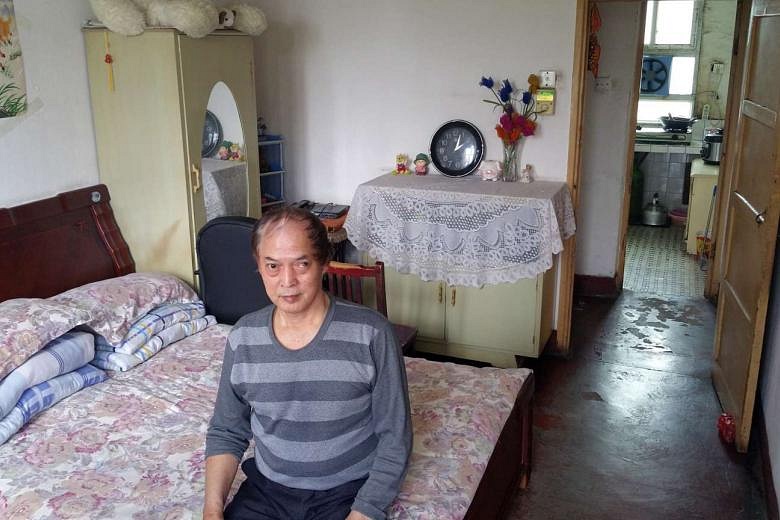CHANGSHA, HUNAN - Mr Han Dehong was a young man and in good health when he left Changsha city in 1964 to heed Mao Zedong's call for China's "educated youth" to go to the countryside to learn from villagers and farmers.
When he returned home a decade later, his left eye had gone blind and he suffered from a series of ailments, including gastric ulcer and sporadic bouts of numbness. His bad health has left him unable to hold a stable job since.
Today, the 70-year-old is penniless and does not receive any pension, relying on his daughters and younger siblings to support him.
Mr Han blames his woes on the send-down movement and the class struggle of the Cultural Revolution.
"I have had a bad life," he says as he lets out a huge sigh.
Mr Han recalls how party cadres would turn up every other day to pressure his parents to let one of their eight children join the send-down movement.
"We had no choice. We also believed the party cadres who painted a rosy picture of how good life was in the countryside," he says.
Mr Han realised how tough his life would be the moment he arrived in the Jiangyong county located about 470 km from Changsha.
He was given backbreaking jobs, such as working in a coal factory, all of which contributed to his illnesses. He believes his eye problem stemmed from malnutrition and inadequate medical care in the countryside.
His health also made him a bad marriage prospect.
"If your body is not well, which girl would want to marry you?"
Mr Han returned to the city in 1974 after China allowed educated youth proven medically unfit to leave the village.
He married a vegetable farmer soon after and they moved to the outskirts of the city. In 1984, his wife became mentally ill and later ran away from home, leaving Mr Han to care for their two young daughters, now aged 38 and 39.
Struggling to make ends meet, he tried several times to apply for financial assistance from the local government bureaus but was rejected because his hukou was registered somewhere else.
Home now for Mr Han is a small apartment that his daughters rent for him for 500 yuan (S$105) a month. They also give him another 500 yuan for expenses.
Mr Han is angry and bitter about how his life has turned out.
"But I can't write essays on my experiences and problems like others do as I am not well-educated. Even if I am, I don't want to get myself into more trouble."


